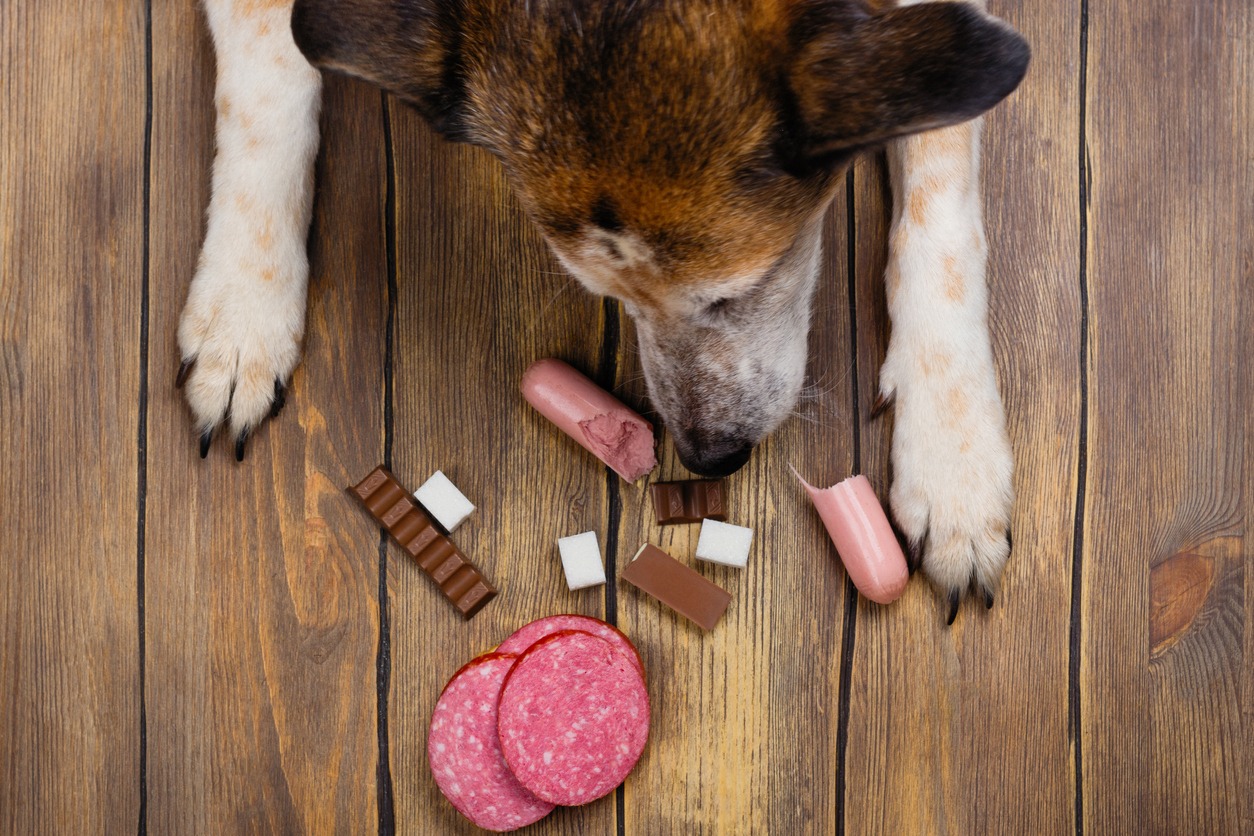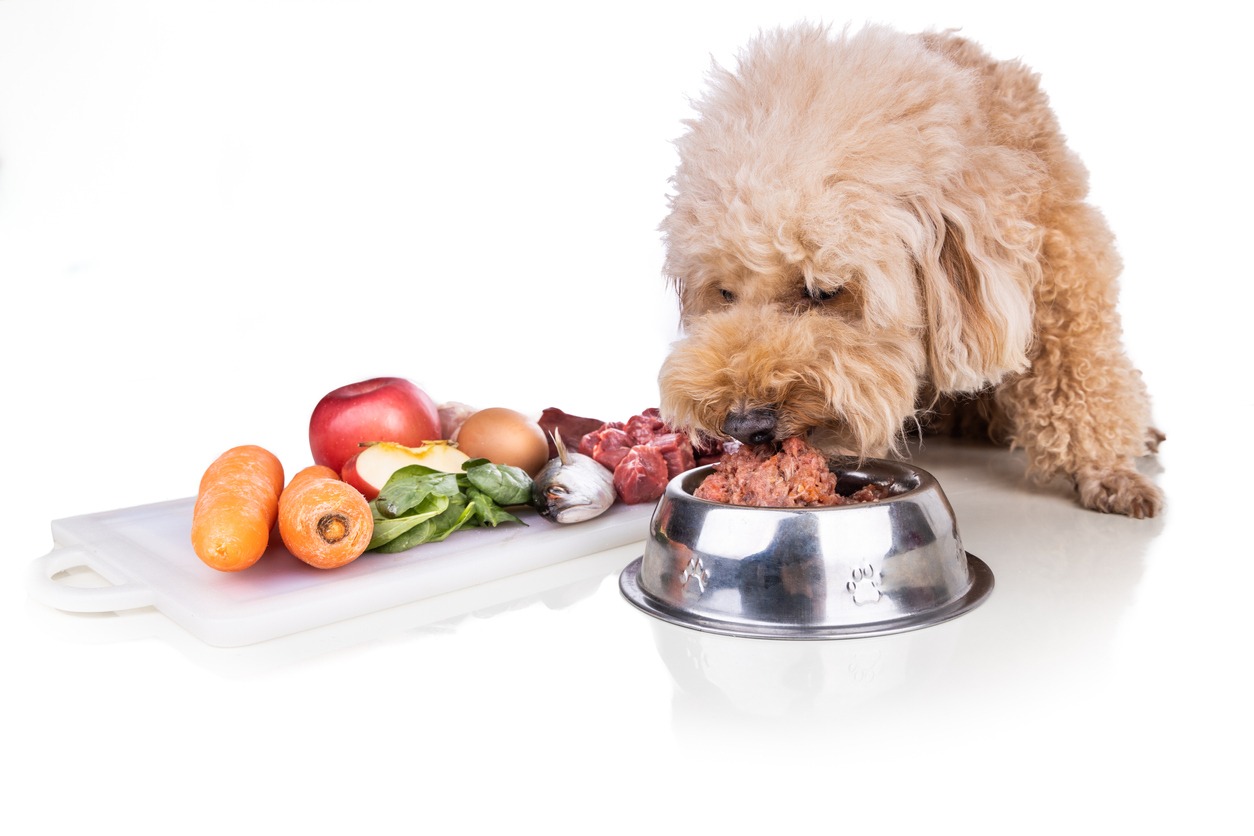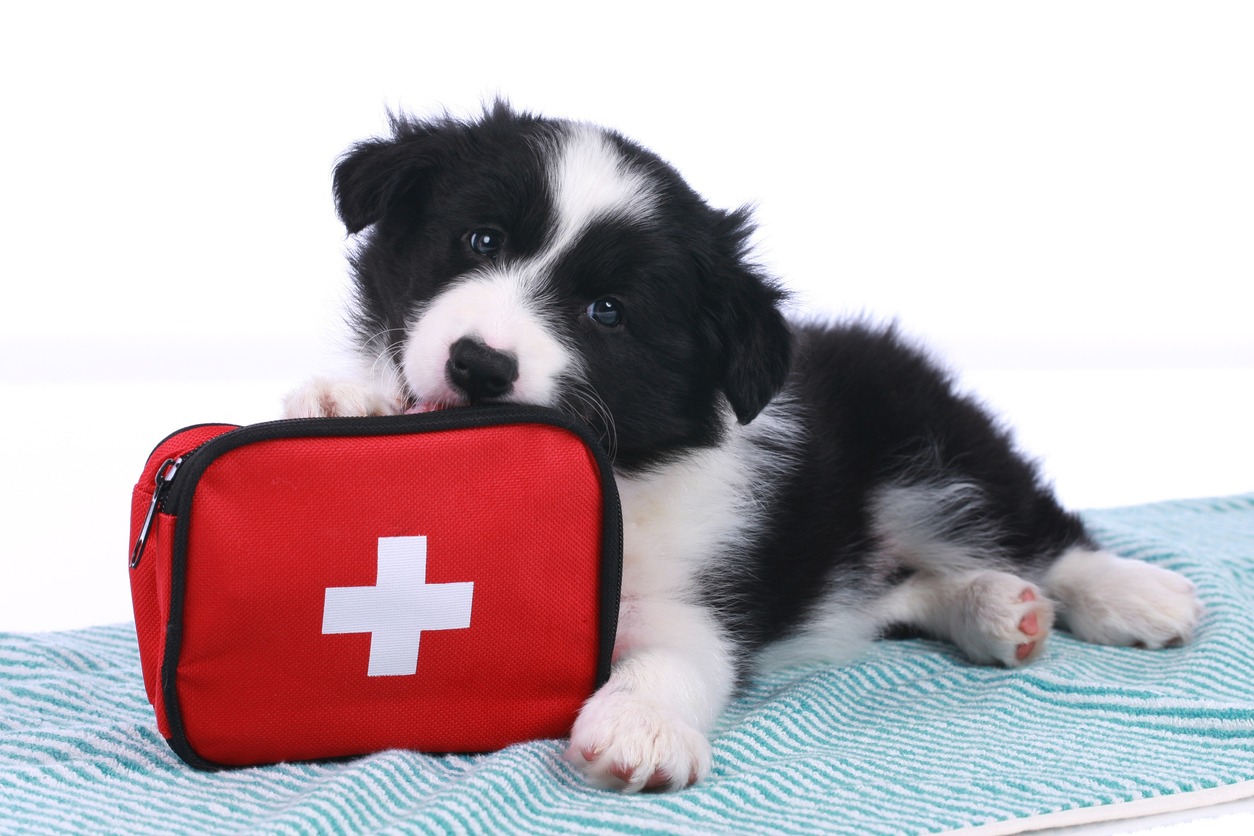Dogs relied on a carnivorous diet to thrive before being domesticated. They go on hunts and consume game. similar to wolves, tigers, and other wild animals.
When dogs were first kept as domestic pets and dog food had not yet been developed, owners frequently fed their dogs leftover food, such as bread. In medieval times, if the dog participated in a hunting expedition, they were entitled to a piece of the catch. It could be a bear, fish, deer, or any other caught animal. They had no idea that the nutrients in this food were insufficient or that it wasn’t the right kind of food for a dog’s diet. Our domestic dogs are omnivores now, even though their predecessors likely only consumed meat. Therefore, canines in modern society consume both meat and plant-based foods.
Dog’s Diet
The diet of a dog is determined by its size, weight, breed, and age. Make sure the pet is supplied appropriate food for the aforementioned factors when doing so.
Water, fat, protein, carbs, vitamins, and minerals must all be included in the canine’s daily essential nutrient intake. They are essential for the body of the dog to function properly.
Water
Dogs occasionally need access to fresh water. Water is crucial for the dog’s health and well-being in a number of ways, including helping the dog digest its food, delivering vital nutrients to the cells, maintaining a normal body temperature, lubricating joints so the dog can move freely, and supporting healthy bones, joints, and brain function. This is especially true for dogs who enjoy being outdoors and who are active and athletic.
Fat
Dogs require fat as one of the essential nutrients they require daily. The dog’s energy needs are partially met by the fat. Additionally, fats assist the canine’s body in storing some nutrients. Furthermore, fats are crucial for maintaining cellular structure, memory storage, and nerve impulse transfer. Their daily diet should ideally contain 63% fat.
Protein
The dog needs the essential amino acids found in protein for the development of its muscles as well as for tissue repair and the creation of a healthy coat and skin.
Carbohydrates
Carbohydrates are crucial since they provide the dog’s body with all of its energy requirements. The absence or lack of carbohydrates in the dog’s body can result in weariness, exhaustion, difficulty concentrating, and irritation.
Vitamins
Vitamins perform numerous functions in the dog’s body. It fights infection, some battle common colds, keeps our dogs’ hearts, lungs, liver, and other essential organs functioning properly, and others aid in the body’s absorption of other nutrients. Vitamins are like an orchestra, with hundreds of players.
Minerals
Minerals are important to the dog’s body because it strengthens the immune system and fights harmful viruses, among others.
What Kinds of Human Foods Are Prohibited from Ever Being Given To Dogs?
Can a dog be fed human food? Yes, however there are some exceptions and limitations.
Excessive salt is one of the prohibited foods for dogs. Too much salt can dry the cells of the dogs, and dehydration can lead to neurological diseases.
Xylitol is another no-no for dogs. These are components that can be found in candy, bubble gum, toothpaste, and other products. It can cause a reduction in blood sugar and lead to liver failure.
Caffeine is fatal to dogs, even in little doses. Caffeine disrupts the neurological system of the dog. As a result, in most cases, convulsions and tremors ensue, and the dog may collapse.
Because alcohol is harmful to dogs, it decreases blood sugar and blood pressure. Additionally, it lowers body temperature. Alcohol also affects the respiratory system.
Dogs should not consume foods containing persin. In dogs, it results in heart failure, gastrointestinal agony, and vomiting.
Pet dogs should not eat anything containing theobromine. It can induce upset stomach, vomiting, and diarrhea in dogs since their bodies can’t break down this toxin. If ingested in bigger quantities, it may potentially have an impact on the heart and brain.
Fruit seeds have cyanogenic glycosides in them. Dogs who consume cyanide risk experiencing vomiting and stomach pain. As soon as the seeds are not digested, it may potentially result in gastro intestinal obstruction.
Red blood cells in dogs may be harmed by oxidative stress if they consume food that contains N-propyl disulfide, Allyl propyl disulfide, or sodium N-propylthiosulfate. It may result in severe anemia.
Your animal friend should not consume tobacco. Nicotine paralyzes dogs by attacking their central nervous system.
It has been discovered that the isothiocyanate present in broccoli and cabbage affects the thyroid gland, making it unsafe for dogs to consume.
Methylxanthines that are present in some foods can result in deadly cardiac arrhythmias, vomiting, and diarrhea. Dogs should not eat chocolate.
We can feed store-bought mushrooms to our dog. However, it is prohibited to consume wild mushrooms due to the toxins they contain, which can damage the kidney and liver.
Yeast and other foods containing uncooked yeast are off-limits to dogs because they can die from the enormous gas that they produce in their stomachs. Some of the symptoms of yeast poisoning are low blood sugar, a cold body temperature, breathing difficulties, and seizures in dogs.
Sometimes our dogs are unable to tolerate spicy foods, just like us. Although technically non-toxic, capsicum can give dogs gas, stomach discomfort, vomiting, and diarrhea.
Dogs cannot be poisoned by ice cream, but because of their poor digestive systems, they may have stomach pain, flatulence, and diarrhea if they consume the lactose found in milk, which is a key ingredient in manufacturing ice cream.
What Actions Should I Take If My Dog Ate Anything Harmful?
If your dog consumes an unallowed food, be sure to act quickly to sort out the situation as soon as possible. A dog who has consumed poisoned food may still be able to survive and recover with prompt medical attention. In the event that the veterinarian is not immediately accessible, it is preferable if we are familiar with basic first aid.
If the dog has consumed forbidden food or chemicals, use a clean cloth to wipe the outside and inside of its mouth and muzzle. Wash the dog’s paws and skin as well to prevent contamination of other parts of the dog’s body. If their contaminated hands get into the dog’s mouth, they may re-ingest the poison. Give no food or drink while observing. Contact a veterinarian right away.
There are over-the-counter anti-histamine or anti-inflammatory medications available if your pet develops swelling due to allergies.
Knowing the reason of our pet’s poisoning is important because it will aid in prompt treatment by the veterinarian.
Conclusion
A dog requires considerable care. There is a cost associated with it. Choosing the proper food for them is one of those things. Even while some dogs require less upkeep and require less sensitive care, it is still crucial to put some time and effort into our furry friends’ nourishment.




